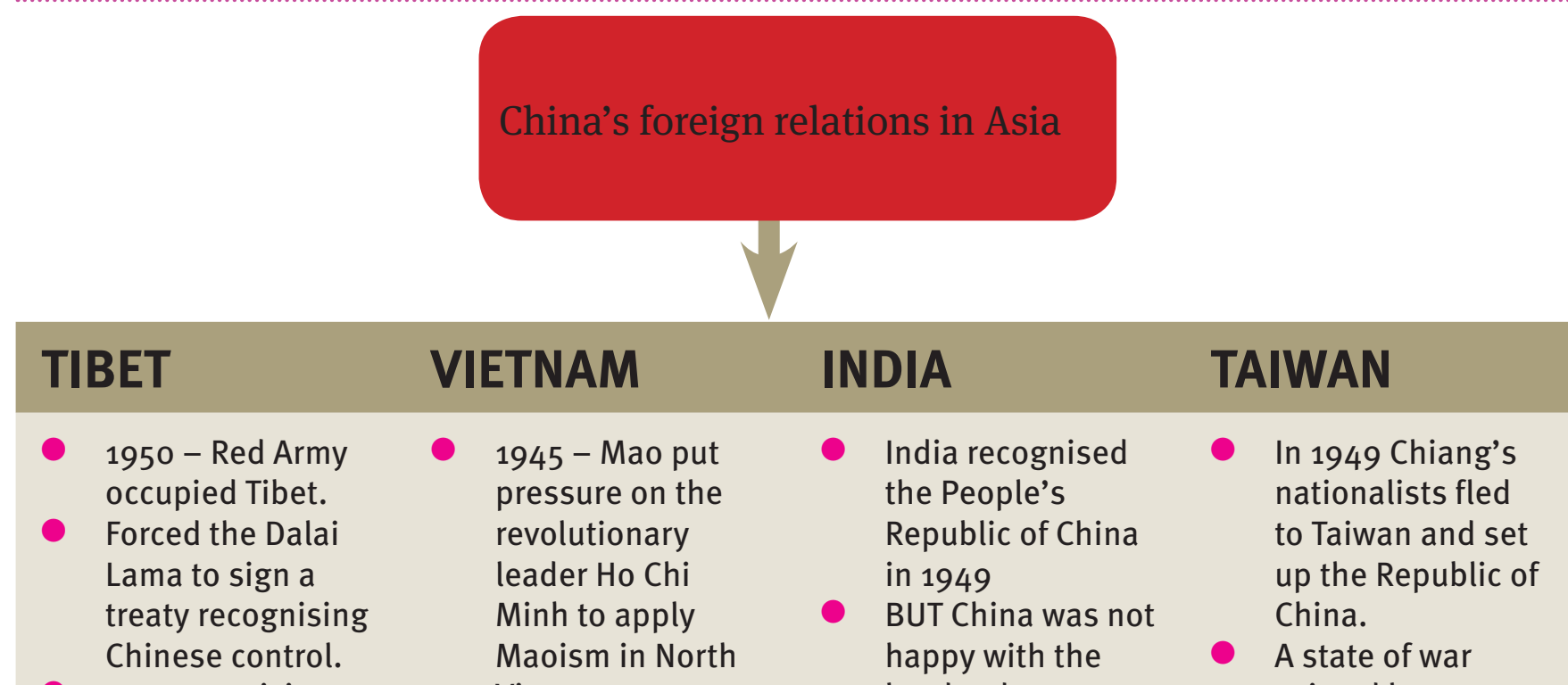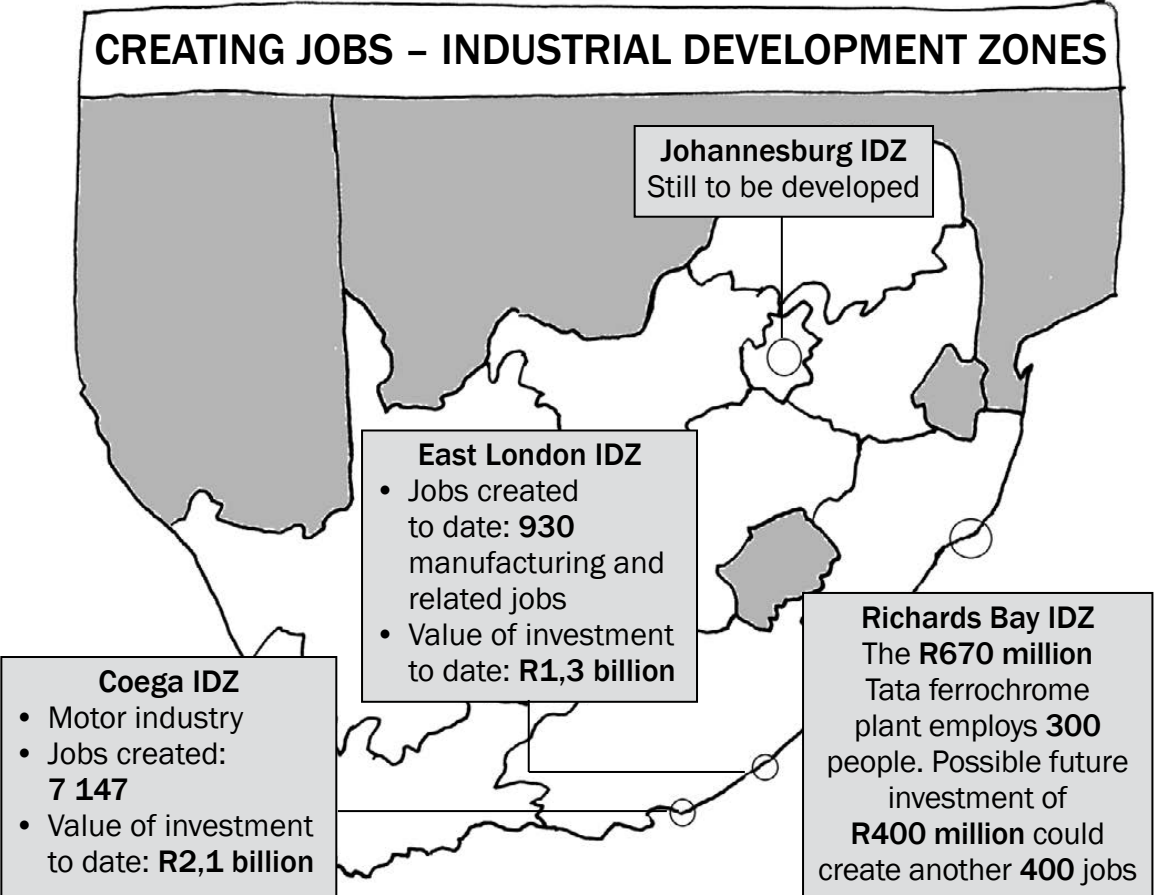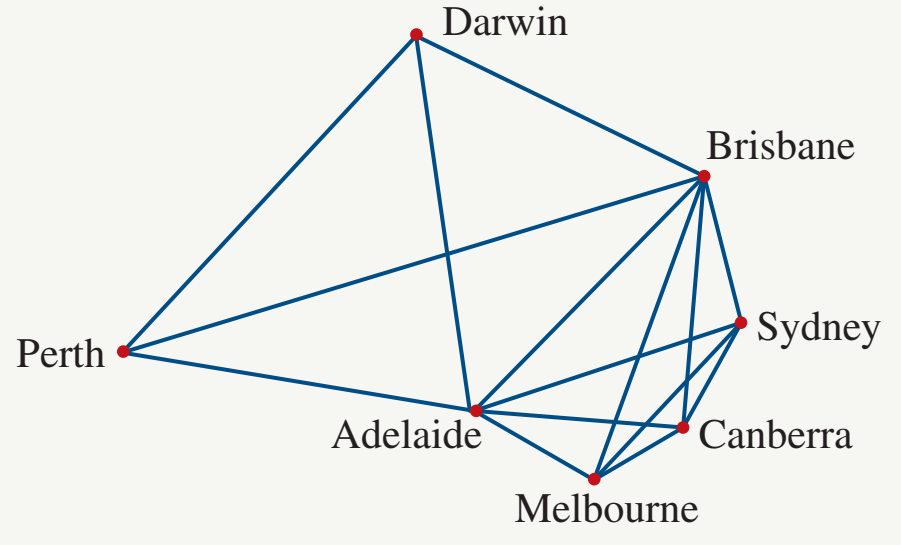Photo AI
Last Updated Sep 24, 2025
China's Post-Mao Relations Simplified Revision Notes for NSC History
Revision notes with simplified explanations to understand China's Post-Mao Relations quickly and effectively.
381+ students studying
China's Post-Mao Relations
Introduction
- Post-Mao China: The passing of Mao Zedong in 1976 resulted in economic stagnation in China. This marked the beginning of significant ideological shifts and reforms.
- That year was crucial in setting the stage for China's transformation into a more market-oriented economy, initiated by Deng Xiaoping's prominent reforms in 1978, which aimed to tackle political uncertainty and economic inefficiencies.

Major Economic Reforms
Limitations of Mao's Socialist Planned Economy
- Great Leap Forward and Cultural Revolution: Both initiatives resulted in widespread famine and impeded education and productivity.
- Centralised planning proved incompatible with the country's developmental needs.
Deng Xiaoping's Rise and Reform Policies
- Deng Xiaoping: Leveraged political alliances to advance reforms, shifting away from Maoist strategies towards pragmatic economic management.
- Launched the Reform and Opening Up policies, which significantly enhanced China's engagement with global markets.

Transition to a Market-Oriented Economy
- Adopted Market Socialism, blending elements of planned and market economies, to encourage innovation and decentralisation.
- Established Special Economic Zones (SEZs), such as Shenzhen, to enhance foreign trade.

Key Definitions:
- Market Socialism: A system blending planned and market economies.
- Decentralisation: The delegation of decision-making to local levels.
Foreign Investment and Open-Door Policies
- The "open-door policy" enabled China's inclusion in the global economy, attracting numerous foreign investments.
- Promoted economic diplomacy by forming strategic alliances with major powers, notably the United States and USSR.

Impact on Diplomatic Relations
Relations with the United States and USSR
- United States: Established substantial economic connections, reinitiating cultural and trade exchanges.
- USSR (later Russia): Enhanced cooperation in the late 1980s, exemplified by Gorbachev's visit in 1989.

Participation in International Organisations
- Became a member of organisations such as the UN and WTO, expanding its global influence.
- Engaged in multilateral forums, thereby boosting its global trade standing.
- Notable achievements include WTO membership in 2001, crucial for economic integration.
China's WTO membership was pivotal in expanding its global trade relations.
Economic Liberalisation's Global Influence
Belt and Road Initiative
- Aimed at connecting Asia with Africa and Europe, strengthening China's global economic role.

Contemporary Challenges
Human Rights and Criticism
- Ongoing issues, particularly in Tibet and Xinjiang, have led to international scrutiny and criticism.
Trade Tensions
- Challenges such as intellectual property concerns have resulted in economic tensions, including US-imposed tariffs.
Ideological to Pragmatic Diplomacy
- Transitioned to pragmatic diplomacy, focusing on economic progress over traditional ideological alignments, as seen in significant trade agreements and strategic partnerships with the US and Russia.

Key Terms and Figures
- Deng Xiaoping: Key reformer and architect of modern China's international policies.
- Nixon's Visits: Laid the foundation for future US-China relations.
In conclusion, Deng Xiaoping's reforms significantly advanced China's economic openness, profoundly affecting its international relationships and establishing it as a crucial global entity.
500K+ Students Use These Powerful Tools to Master China's Post-Mao Relations For their NSC Exams.
Enhance your understanding with flashcards, quizzes, and exams—designed to help you grasp key concepts, reinforce learning, and master any topic with confidence!
180 flashcards
Flashcards on China's Post-Mao Relations
Revise key concepts with interactive flashcards.
Try History Flashcards31 quizzes
Quizzes on China's Post-Mao Relations
Test your knowledge with fun and engaging quizzes.
Try History Quizzes15 questions
Exam questions on China's Post-Mao Relations
Boost your confidence with real exam questions.
Try History Questions2 exams created
Exam Builder on China's Post-Mao Relations
Create custom exams across topics for better practice!
Try History exam builder90 papers
Past Papers on China's Post-Mao Relations
Practice past papers to reinforce exam experience.
Try History Past PapersOther Revision Notes related to China's Post-Mao Relations you should explore
Discover More Revision Notes Related to China's Post-Mao Relations to Deepen Your Understanding and Improve Your Mastery
96%
114 rated
The Extension of the Cold War – China
Communist China's Establishment
390+ studying
188KViews96%
114 rated
The Extension of the Cold War – China
The Cultural Revolution
311+ studying
184KViews96%
114 rated
The Extension of the Cold War – China
China's Foreign Relations
236+ studying
187KViews